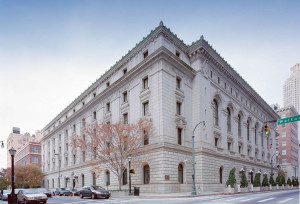Supreme Court E-Filing to Begin Nov. 13, 2017
Last week we reported that the Supreme Court of the United States went live with their new website–its first step of a modernization plan that includes e-filing. Â Yesterday, the Court set a date for e-filing to begin and provided some details.
According to the Court’s press release, e-filing will begin on November 13, 2017.  Parties will be required to file both paper and electronic copies, with the paper copy being the official copy for now (so remain vigilant with your mailing and paper filing practices!).  Pro se parties will continue to file just paper, but the Court will scan all filings to make them available on the electronic system.  That system should provide easy website access to all filed documents for public access.
Registration for the new e-filing system will begin “4-8 weeks before the system begins operation,” so keep a lookout for another press release at about mid-September. Â The Court has placed an “Electronic Filing” link in the center of its home page that it says will supply additional information, but currently contains only the text of the press release.
A recent video from the U.S. Courts shows the amazing efficiencies obtained from e-filing in other federal courts. Â Presumably the same benefits of modernization will occur in the Supreme Court. Â That said, one wonders what the new, leaner Supreme Court will look or feel like. Â We can’t help but feel a bit nostalgic for the days of paper as this bastion of traditional practice updates for the twenty-first century.


